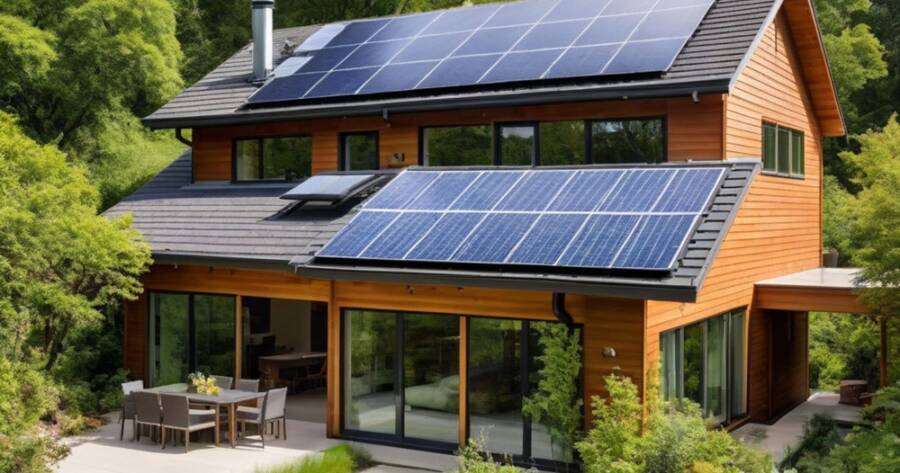Switching to solar panels can be a game-changer for your finances. By harnessing the power of the sun, you can significantly reduce your monthly energy bills and even increase the value of your home. Over time, the savings can add up, potentially saving you thousands of dollars. Beyond the financial benefits, solar panels offer a sustainable energy solution, making them a smart choice for those looking to cut costs while helping the environment.
Solar Panels Are More Affordable Than Ever
The cost of residential solar panels has significantly decreased over the years, making it an increasingly affordable option for homeowners. With the extension of the federal tax credit, which currently offers a 30% tax deduction on the installation of solar systems, the upfront cost has become even more manageable. This means you can save money on your solar panel purchase while enjoying long-term savings on your energy bills.
Additionally, financing options like solar loans have made it easier to invest in solar energy. Many homeowners find that their monthly solar loan payment is less than what they would typically pay for utilities, allowing them to start saving right away. With a variety of financing options available, the initial cost of solar panels has become more accessible than ever.
Cut Down Your Utility Bills
One of the most immediate ways solar panels save you money is by significantly reducing your monthly utility bills. By generating your own electricity, you can lower or eliminate the need to purchase power from your utility provider. The savings depend on the size of your solar system and how much energy you consume, but the more energy-efficient you are, the greater your savings.
With energy costs on the rise, investing in solar panels offers a stable way to lock in lower electricity rates for years to come. Whether you own your solar system outright or opt for a third-party system where you purchase the electricity generated, you’ll pay less than typical utility rates, which can fluctuate over time. Over the years, these savings can add up to thousands of dollars.
Increased Home Value and Long-Term Investment
In addition to the immediate savings on energy bills, solar panels can increase the value of your home. Studies show that homes with solar energy systems are valued higher, just like renovated kitchens or updated bathrooms. Potential homebuyers are often willing to pay a premium for properties with an existing solar system, recognizing the long-term savings and sustainability that come with it.
This makes solar panels not only an excellent investment for your utility bills but also for the future resale value of your home. The return on investment through both energy savings and increased property value ensures that your decision to go solar can pay off in more ways than one, offering a boost to your home’s overall worth.
Solar Energy Works in Any Climate
One common misconception about solar panels is that they only work in sunny climates. However, solar panels are effective in a wide range of weather conditions, even in colder or overcast regions. While the amount of sunlight may vary, solar panels can still generate electricity, making them a viable option for homeowners across the country, even in areas with long winters or cloudy weather.
The U.S. Department of Energy ensures that solar panels are built to withstand various climates and weather conditions, offering homeowners reliable performance regardless of where they live. This flexibility means that solar power is not only an environmentally friendly choice but also a practical one, no matter your location.
Embrace the Future with Solar Energy
Investing in solar panels is a smart and sustainable choice that can save you thousands of dollars over time. From significantly reducing your energy bills to increasing the value of your home, the long-term benefits are clear. With improved affordability, diverse financing options, and the ability to generate power in nearly any climate, solar energy is more accessible than ever. By making the switch today, you’re not just saving money—you’re also contributing to a more sustainable future.

